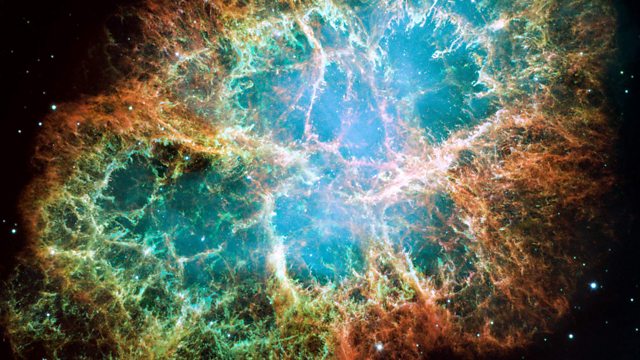Cosmic Rays
Melvyn Bragg and his guests discuss cosmic rays, the mysterious high-energy particles that constantly bombard Earth.
Melvyn Bragg and his guests discuss cosmic rays. In 1912 the physicist Victor Hess discovered that the Earth is under constant bombardment from radiation coming from outside our atmosphere. These so-called cosmic rays have been known to cause damage to satellites and electronic devices on Earth, but most are absorbed by our atmosphere. The study of cosmic rays and their effects has led to major breakthroughs in particle physics. But today physicists are still trying to establish where these highly energetic subatomic particles come from.
With:
Carolin Crawford
Gresham Professor of Astronomy and a member of the Institute of Astronomy at the University of Cambridge
Alan Watson
Emeritus Professor of Physics at the University of Leeds
Tim Greenshaw
Professor of Physics at the University of Liverpool.
Producer: Thomas Morris.
Last on
LINKS AND FURTHER READING
听
听
听
听
听
听
READING LIST:
听
Roger Clay, Cosmic Bullets: High Energy Particles in Astrophysics (Basic Books, 1999)
听
F. Close, M. Marten and C. Sutton, The Particle Odyssey: A Journey to the Heart of Matter (Oxford University Press, 2002)
听
Brigitte Falkenburg and Wolfgang Rhode (ed.), From Ultra Rays to Astroparticles: A Historical Introduction to Astroparticle Physics (Springer, 2012)
听
Ian Sample, Massive: The Higgs Boson and the Greatest Hunt in Science (Virgin Books, 2013)
听
Credits
| Role | Contributor |
|---|---|
| Presenter | Melvyn Bragg |
| Producer | Thomas Morris |
| Interviewed Guest | Carolin Crawford |
| Interviewed Guest | Alan Watson |
| Interviewed Guest | Tim Greenshaw |
Broadcasts
- Thu 16 May 2013 09:00大象传媒 Radio 4
- Thu 16 May 2013 21:30大象传媒 Radio 4
Featured in...
![]()
20th Century—In Our Time
Browse the 20th Century era within the In Our Time archive.
![]()
Science—In Our Time
Scientific principles, theory, and the role of key figures in the advancement of science.
In Our Time podcasts
Download programmes from the huge In Our Time archive.
The In Our Time Listeners' Top 10
If you鈥檙e new to In Our Time, this is a good place to start.
Arts and Ideas podcast
Download the best of Radio 3's Free Thinking programme.
Podcast
-
![]()
In Our Time
Melvyn Bragg and guests discuss the ideas, people and events that have shaped our world.



